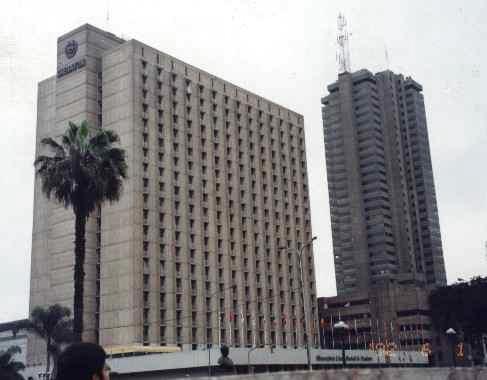|
In the early 1970s, I was employed as a civil engineer with a leading geotechnical consulting firm in Lima, Peru.
Over a period of several years, I was in charge of many soil investigation studies.
One such study
took me to the site of the Sheraton Lima Hotel, a 20-story high-rise which was being planned
at that time near the center of the city.
The geology of the region is well known, consisting of well compacted alluvial material,
mostly sand, gravel, and boulders,
an ideal material for foundations. However, the owner's engineer was not sure.
To reduce the risk,
he requested three exploratory drillings, each to a depth of 30 m,
to make sure that the soil was competent to carry the design loads.
We argued that open pits would be cheaper and safer to properly ascertain the
characteristics of the soil profile,
and, on this basis, were awarded the contract to perform the study.
We hired a team of tough, seasoned Peruvian miners from Huancavelica,
led by a man named Zenón. Our team completed the three soil pits, each 1.5 m in diameter and
30 m in depth, in about three weeks. We confirmed the existence of well compacted granular material
throughout the soil profile at all three sites.
Once the work was completed, the owner's engineer could hardly believe it!
He was particularly impressed that we had accomplished the work
without any bracing or fancy equipment, using just a pick and shovel and
an old-fashioned tripod, pulley, and bucket assembly.
He ordered the holes filled with concrete and the contract paid in full.
Thus, the moral of the story: You don't have to be fancy to be effective.
| ||
|
|
